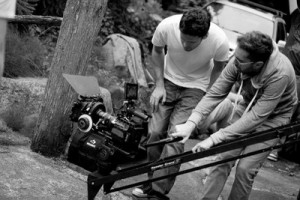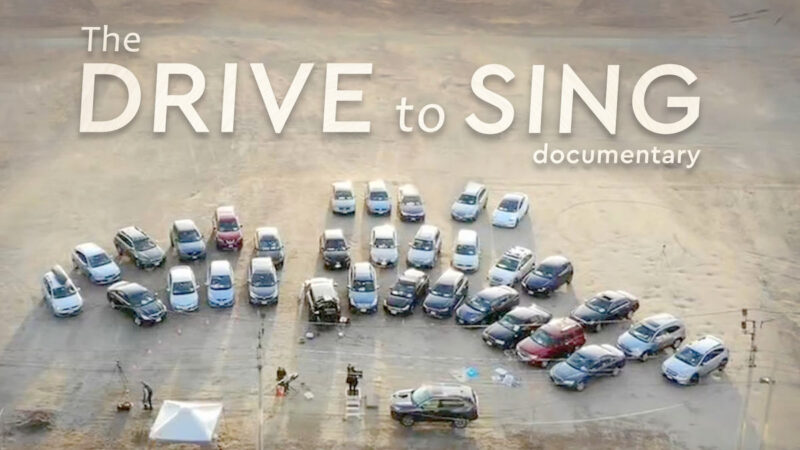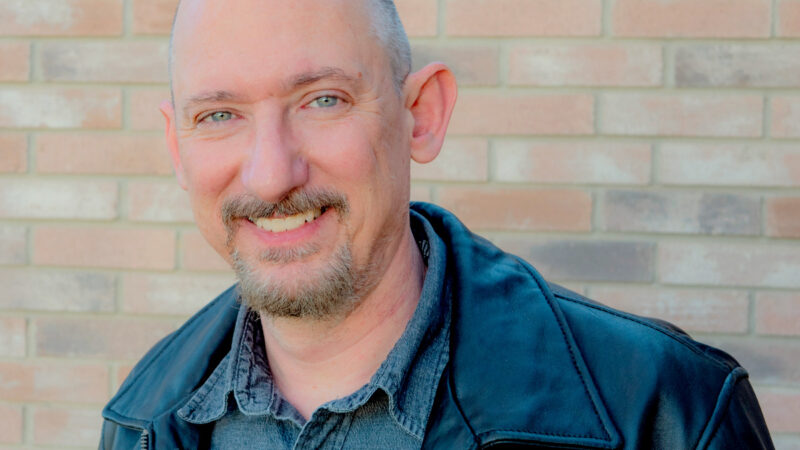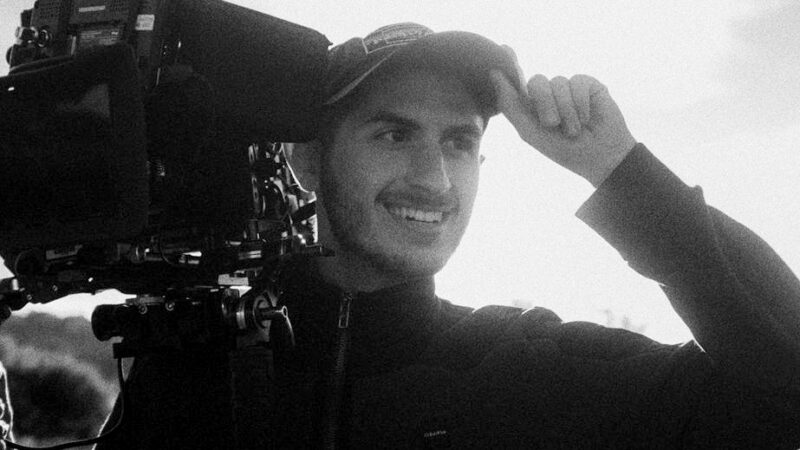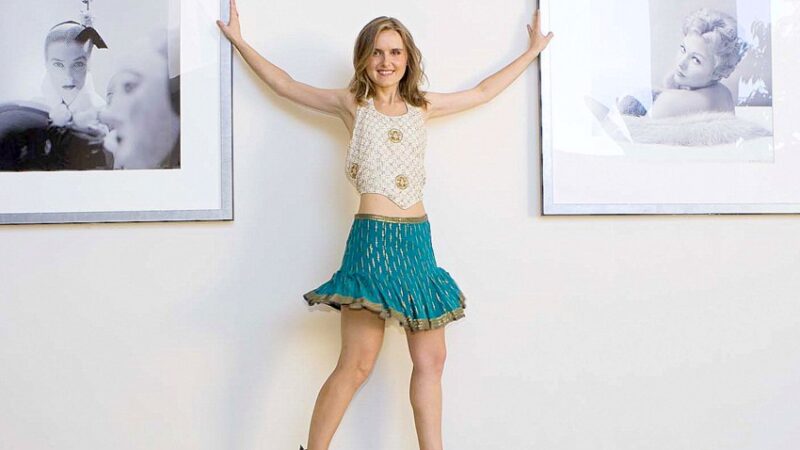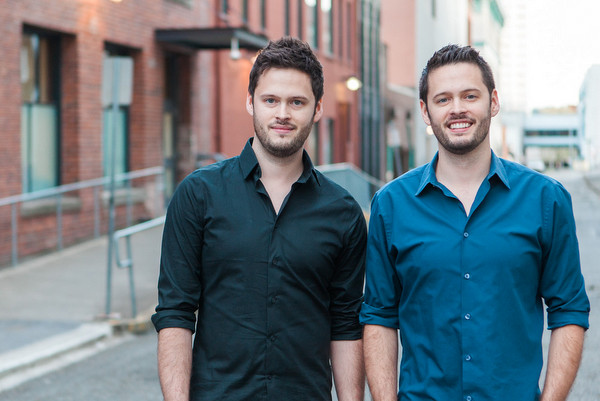
We’ve been working in the film and video industry in the Seattle-area for almost ten years. Originally from Moscow, Idaho, we got our start when Kevin moved to Seattle to enroll in an acting school. Eventually I made the move as well, and that’s when Kevin and I first got into filmmaking.
In the ten years since we began we’ve worked on everything from commercials to museum exhibits, and have worked with a variety of companies including the Seattle Seahawks and Macklemore and Ryan Lewis. When we have time we write, produce, and direct our own narrative projects. We’ve won several awards for our short films, most recently taking 3rd place internationally for the 48-Hour Film Festival, out of around 4500 total entries, which will take us to the Cannes Film Festival in May.
How would you describe your work as a director
Phillip: Constantly improving. It takes a lot of work to make a movie, and there are a lot of lessons that you need to learn along the way. A lot of mistakes to be made. We always start very excited about our concept, and with each project we grow closer (we hope) to executing that concept properly.
We’ve worked with several different genres and I can’t say that we’re attached to anything in particular. I think one area that we get excited about is what I would describe as ambience. To create a sense of place that you can really feel. It’s real to you, and so are the people that inhabit it. It’s something that I think about when I am choosing a movie and I want to continue working on creating movies that have that effect.
How did you get into directing
Kevin: I would answer this by saying: it’s more about how I got out of acting. I realized that it was the really great stories that were attracting me to this industry and not necessarily just the great performances. I’ve always been a more technical person and film making enabled me to be able to create my own story instead of being an actor in somebody else’s.
Phillip: Adding to that, film making is really a great balance between creative and technical. It satisfies both of those interests for me.
When you first start out – at least for us – you wear all the hats. You’re doing everything. Only as time has gone on and we’ve continued to work on productions have we started to find ourselves in a more distilled version of the director’s seat. It’s nice, though, to be able to focus on one thing. Thank goodness for division of labor, as long as you have a great team!
 How do you choose a project to direct
How do you choose a project to direct
Well for us we are usually directing our own projects. That’s not to say that we wouldn’t ever direct anything else, there just mostly hasn’t been time for it! It takes so long to take a concept from writing to completion that by the time you’re finished with one you’ve probably got a list of ten other potential films you could make.
You’ve got to pick your battles very wisely, as whatever you choose is going to take a lot of time, money, and soul to get done. That being said, we make a choice based on several variables: Our level of passion toward the idea, the resources that we have available to us, and the potential marketability of the project, especially as we’re entering the world of feature films. And as cliché as it might sound, no matter what the size or scope of the project is, the strength of the story is usually our number one concern. And when a project is finished, the story is one of the main things we go back and look at as a measure of success.
Briefly describe in a few words wrong impressions actors, writers,and directors have about directing
It’s an interesting question. I feel like we have been all of those things. It’s hard to answer because it seems like a director can embody so many different things depending on the project. I think for people that assume a director always has all the answers to every facet of a production can be a wrong impression. Granted, it’s the director who has final say, and they always should have an answer, but that doesn’t mean that someone else might not have a better answer in any given moment.
I think understanding the end-goal and the flow of the story becomes the strict job of the director, and the level of collaboration he/she chooses to accept depends on them. I wish that I was the kind of person that knew the answer to everything, that I could hold each person’s job in my head and know every move from start to finish, but at the end of the day that’s why you hire people that care about what they’re doing. Harness them! That’s me anyway.
Do you take courses to increase you craft
Kevin: The short answer is no, not often, although I think that it’s paramount to seek out opportunities to grow, whether you find that through courses or by some other means. For us, we chose more of a learn by doing approach; and many times a learn by needing. We’ve made a lot of mistakes that way, but hopefully those are mistakes that we won’t make again.
Phillip: I’m very selective about what I sign up for. There’re a lot of people offering to teach something, but I’m not always sure about their credentials. I’ll make an effort to go to a seminar for someone that I know about that has a skill I can learn. At the end of the day I think you can probably learn something from everybody, but you can also learn it yourself. And as Kevin was saying: mistakes. You’ve got to make them. Even when you think you’re done making them. You’re not. Even when you’ve learned about a mistake in a class, you don’t truly learn why you don’t want to make that mistake until you make it.
What books do you read
Kevin: Of all the books that I’ve read the one that I recite the most to myself is Invisible Ink, by Brian McDonald.
Phillip: I would have to agree with that. When I am studying I’m usually hoping to improve my storytelling abilities. You can buy production value but not necessarily a good story.
Why will you choose an actor, writer or producer. What do you look for
Passion and work ethic are very important, and I don’t think that only applies to production. For an actor you obviously have to have the right look for a project, and unfortunately that is independent of either of those qualities. Generally speaking, we have continued to grow our network of people that do a good job, that care about what they’re doing, that are fun to be around… Those are the people that we keep bringing back. If it’s an actor, we’re going to try to get someone that fits the bounds of our project and hopefully that’s somebody that we’ve worked with before that fit those criteria.
When you are offered a project, what things do you put in place to deliver a good job
The previous answer applies pretty well here also. It’s important to get the right people in the room together. That’s going to give you the best material to work with. And it’s at that point you want to make sure that your story is as good as it can be, because otherwise you’re just wasting everybody’s time and money.
Briefly explain your latest work
Probably the most notable work we did recently was for the Seattle Seahawks during the playoffs. We developed several videos from concept through to final product – subject to their approval and within their branding. It was a grueling pace with grueling hours, but obviously it was a very special time for everyone here in Seattle.
I’m sure we gained a lot of great experience in that month or so of production. I think we created about 11 videos? We had the opportunity to try several different things and all dealing with the same subject matter: football. That was an incredible challenge, and we had some concepts that turned out great and some that were just a little.. meh, but what a great opportunity and we hope to do more work with them in 2015.
What thing/situation helps you during production
Being as prepared as possible. The importance of this has continued to grow with me every step of the way and it doesn’t seem to be a lesson I can just check the box and forget about. Not yet, anyway. I don’t know if it’s just a personal thing that I have but I always feel like I could be more prepared. You need to know your project as much as you possibly can. The last thing you want is for the whole machine to stop – and have a whole crew standing there looking at you – while you try to work something out on the spot. Perhaps that is an inevitable part of the process but the less that has to happen the better.
Explain a creative choice you took on set on a recent production
This question makes me think of a short film we made a year ago called Criminals. It was another 48 hour film challenge. My good friend Ty and I started in on the writing but this year we were both exhausted from working long weeks and we just couldn’t come up with anything. I remember it was 2 a.m. and we finally called it a night. We decided to meet up the next day and call everyone and tell them we were dropping out because we didn’t have a strong enough story. The next morning Ty drove over and met me at a cafe and we ended up hashing together this bullet point list of a story. But in order to execute it in time we had to change up our entire production style.
We chose to shoot the whole thing using hard cuts which saved us a ton of time since we didn’t have to do all the traditional over the shoulder shots, etc. And it also enhanced the comedic moments and gave our whole movie a cool edginess. We had the actors work really improvisationally which got us some hilarious and unexpected performances. So after almost quitting the competition we ended up making a really cool video by changing the whole way we operate at the very last second. We ended up winning Best in Seattle during that year’s competition.
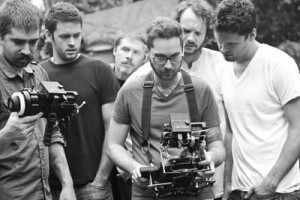 How do you advice directors to find projects
How do you advice directors to find projects
There are a lot of people out there trying to get projects made. Whether you’re going to direct your own work or somebody else’s, make sure that you care about the project a lot.
As we said earlier it takes an incredible amount of work to see a project through to completion, and once you start – especially if you’ve entered production – you owe it to your team to try to finish that project to the best of your ability. So you better be up for that. Would you be willing to embrace an idea for a month? More likely a year? Two years? When you’ve lived that it gives a whole new meaning to you when someone walks up with “a great idea for a movie!”
If you’re really just starting out and don’t know where to start, I would say that you need to create your own starting point. Find and adapt a short story. Start getting something on a screen, even if you’ve shot it on an iPhone and put it on YouTube or just show it to your Facebook friends. Work begets work. The more you do of one thing, the more you will continue to find the same kind of work
How can filmmakers finance projects
This is certainly no filmmakers favorite part of making films. Generally, any production takes money to get made, but it depends on how you do it. Obviously there are some new ways to get financed these days with crowd funding, but I think even with that you need to have built up some kind of reputation for yourself and you need to be realistic as to what can be expected.
One mistake related to crowd-funding in particular is this idea that the project is just going to spread itself, or that you can just spam Facebook for 30-60 days and get your project made. You might lose a few Facebook friends, but you probably won’t be making any movies. (Also, I think in the case of films, an all-or-nothing campaign is better than the alternative, simply because people don’t want to contribute to a campaign that won’t be able to properly execute assuming it fails. What does that filmmaker do with my twenty dollars after that? Buy a nice glass of whisky and weep into it? I’d rather drink the whisky myself, but this is getting too specific.)
The more work you do, the more of a following you will have. It’s just the natural progression of things, especially if you do quality work. People will notice. They will be excited, and if they can, they will help you get things made. Unless you’re one of the lucky few that can hammer out an amazing script and you know or meet the right people, you’re going to have to start with a very modest budget for your movies, and it’s probably going to be you that’s paying for it. Keep your production needs low. We’ve made movies with a 30-person crew and we’ve made movies with a 3-person crew. Quality was not a compromise in a scaled-down project.
What do you want from an actor in production
Well I suppose I would start to answer this question with what a lot of filmmakers would desire from an actor. I want them to be comfortable and open so that they can deliver the most natural performance they can. I absolutely appreciate an actor’s willingness to be directed. When you work with professional actors it makes it much easier when they’re not taking offense or taking it personally whenever you have changes you want to make.
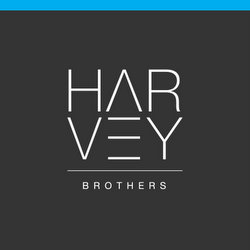 How do you prefer to work with a producer during a production
How do you prefer to work with a producer during a production
I think this is something that changes for every production, but generally I would say that there are certain things that I personally don’t enjoy doing, such as approaching homes for potential locations or any of those awkward people-related encounters. When somebody else can pave the way for me to do something and I don’t have to deal with that, I love it. To me, a producer’s job is to get things done, and that can be directed in many ways. As the scale of a production increases, so can the number and diversity of producers.
What do you think a director can do to get into the film industry
Well it depends on your definition of the film industry, I suppose. If you want to direct, I think you can just start doing it. If you want to be in Hollywood, well then I think you can be climb the ladder down in Hollywood, cutting your teeth on other people’s sets until you can break off and do your own thing, and many people have made that work!
For us we have just been working on projects for long enough that it seems difficult to imagine doing anything else. Work has found us just by sheer involvement with the medium. Is it all pure directing? No. We got to where we are by being able to do everything ourselves. Not being able to find somebody to edit won’t stop us from getting something done, because we can edit. We can shoot. We can do audio, visual effects, motion graphics, etc. Are we specialized in any of those particular fields? Not by any means. That’s just what it took to get our own work made.
Who is your favorite director
Kevin: I’ve been really impressed with J.J. Abrams lately. I think he is an amazing Hollywood director. If you’ve ever considered the challenges a director like that has to face working with such massive franchises and massive budgets around very controlling studios. He knows what an audience wants to see and how to keep the studio happy without a sacrifice to the story. He knows the game he’s in and he has fun, and incredible success. If you ever see footage of him while he’s directing you can tell he truly enjoys what he does. He doesn’t lose sight of the amazing opportunity this is to be working on such cool projects. He has that childlike enthusiasm for it I think we all want to hold onto.
Phillip: Kevin took JJ Abrams so I am going to say Guillermo Del Toro, particularly with a work like Pan’s Labyrinth. GDT is clearly a great visual storyteller. I love the creatures, and I love the classic fairy-tale feel of a movie like Pan’s Labyrinth, but mixed with a little bit of darkness. Another equally worthy mention would be Peter Jackson. I’m a big fan of Lord of the Rings. I think the Fellowship installment encapsulates so many great facets of filmmaking and storytelling. It had humor and humanity and places that had such a visceral feel to them. The world was so real to me, I wanted to go there. And that’s usually what I look for in a movie, or what I hope for. I want to feel a place like that.
the
I, Charon from Harvey Brothers on Vimeo.
What advice would you give to directors around the world
Wow, well… As up-and-coming Indie Filmmakers, if we can give ourselves that much credit, I don’t believe I can really give anyone any real advice. My opinion would be that, if we really want to pursue this amazing job, we all have lessons we need to learn and a responsibility to be able to tell the best story possible. I don’t even think we need to necessarily confine ourselves to making “amazing works of art” or anything either. Filmmaking is vast enough for people to make whatever they want. Make a silly comedy, make an edgy action movie, or make a shocking examination of the human race. We need them all. I would just endeavor to make them to the best of your ability and with a good and creative spirit. If you can make the world a better place while you’re at it that would be swell.
Briefly write about your career
We have been extremely fortunate, especially lately, with the opportunities that have come our way. It took a lot of hard work to get to this point and it’s nice to feel like the momentum is starting to pick up. We can drop names like the Seahawks and Macklemore and Ryan Lewis, but on a personal level I think it’s fantastic that we’ve been able to network with some great people over the years. I think that’s all part of growing as a filmmaker, but I’ve started to have the feeling that people believe in what we’re doing. They believe in what we’re capable of.
INTERVIEWS
more interviews

